Featured Speaker:
The Honourable Camille Robinson Regis, MP- Minister of Planning and Development
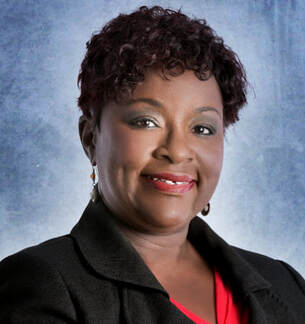
The Honourable Camille Robinson-Regis, appointed to the Senate in 1992, entered the political landscape as the youngest Senator to be appointed to the Cabinet of Trinidad and Tobago. An attorney-at-law by profession, she held the portfolios of Minister of Information from 1992 to 1994, Minister of Consumer Affairs from 1994 to 1995 and Minister in the Ministry of Planning and Development, responsible for the environment. She became Minister of Legal Affairs 2001-2003 and became the first woman to serve as a Minister of Planning and Development in Trinidad and Tobago and CARICOM. Under her stewardship, the signature Vision 2020 Operational Plan was completed, having been developed by a multi-disciplinary team of representatives from the public and private sectors, civil society and academia.Minister Robinson-Regis has also served our country as a diplomat, having been appointed High Commissioner of the Republic of Trinidad and Tobago to Canada in 2007, a position she held until 2010. Her exceptional career path is supported by her sound educational background, beginning with her Primary School foundation at Bishop Anstey Junior School, proceeding to Bishop Anstey High School as her Secondary and later the University of the West Indies, St. Augustine and Cave Hill campuses, where she undertook a Bachelor of Laws degree and subsequently the Legal Education Certificate at the Norman Manley Law School, Jamaica. Minister Robinson-Regis was admitted to the Trinidad and Tobago Bar in 1985.
With her insight and experience, Minister Robinson Regis has returned to the Ministry of Planning and Development as the Minister, having been appointed on September 11th, 2015.
With her insight and experience, Minister Robinson Regis has returned to the Ministry of Planning and Development as the Minister, having been appointed on September 11th, 2015.
Tim Dixon, General Manager, IEAGHG
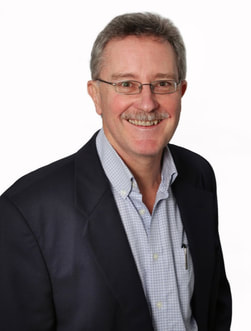
Tim Dixon is the General Manager of IEAGHG, a not for profit organization that focuses on technologies that can reduce carbon emissions, and mitigate climate change and global warming. IEAGHG is an international research programme established by the International Energy Agency in 1991 and focusing on carbon dioxide capture and storage (CCS). Tim is responsible for managing IEAGHG, ensuring that it meets the needs of its members and delivers the technical evidence-base to support CCS development and deployment around the world, and inputting to international regulatory and policy developments such as UNFCCC, IPCC and CSLF.
Tim is a member of many international committees, task forces, and working groups relating to CCS, including being chair of several. He has given many presentations and published many papers relating to CCS. Prior to IEAGHG, Tim worked in UK government and AEA Technology on CCS, including as a negotiator for CCS in the UNFCCC and London Protocol.
Professor Andrew Jupiter, (Professor of Practice), Dennis Patrick MHTL Chair in Petroleum Engineering, The University of the West Indies
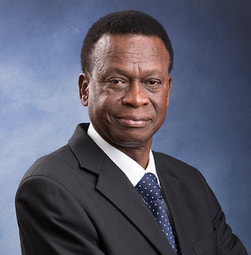
Andrew Jupiter was conferred the honorary title of ‘Distinguished Fellow’ by The University of the West Indies (UWI) in 2013. He is currently attached to the Department of Chemical Engineering in the Faculty of Engineering at UWI and is the co-ordinator of the M.Sc. Petroleum Engineering and M.Sc. and Postgraduate Diplomas in Petroleum Engineering and Management programmes. Professor Jupiter is the holder of the Dennis Patrick MHTL Chair in Petroleum Engineering. He is also the proud recipient of the Chaconia Medal (Gold). From 1998 to 2004 the Professor of Practice served as Permanent Secretary, Ministry of Energy and Energy Industries and was one of fifty public servants honoured on the 50th anniversary of Trinidad and Tobago’s Independence. Professor Jupiter was president of the National Energy Corporation of Trinidad and Tobago Limited (National Energy) from 2009 to 2012. He was the Director on several State boards. Currently, Professor Andrew Jupiter is a member of the Society of Petroleum Engineers, Fellow of the Energy Institute and Fellow of the Institute of Materials, Mineral and Mining.
Dr. Katherine Romanak, Environmental Geochemist, The University of Texas at Austin
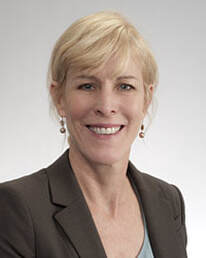
Dr Katherine Romanak is a Research Scientist, Bureau of Economic Geology, Jackson School of Geosciences at the University of Texas at Austin. Dr. Romanak is an expert in near-surface geochemical monitoring and environmental impacts of geologic carbon storage and has developed and implemented monitoring programs at a number US DOE Regional Carbon Partnership sites. She was the Principal Investigator of the IPAC-CO2 response to alleged leakage at the Kerr Farm near the Weyburn-Midale CO2-EOR oilfield and has developed an innovative process-based method for environmental assessment at CCS sites. Dr. Romanak consulted on the QUEST CCS Project’s Hydrosphere Biosphere Monitoring Program. She has also informed global CCS policy regarding potential environmental impacts of CCS within the United Nations Framework Convention on Climate Change (UNFCCC) and the US Congress.
Phillip Ringrose, Equinor Research Centre, Norway
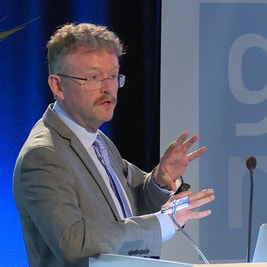
Philip Ringrose is Adjunct Professor in CO2 Storage at the Norwegian University of Science and Technology (NTNU) and Specialist in Geoscience at the Equinor Research Centre in Trondheim, Norway.
Philip Ringrose currently works at the Equinor Research Centre in Norway, and is Adjunct Professor at the Department of Geoscience and Petroleum, Norwegian University of Science and Technology. His research interests include CO2 Storage, reservoir modeling, and applications of geophysical monitoring methods. He is Chief Editor of the Journal Petroleum Geoscience. In 2018 he was appointed as Honorary Professor (Sustainable Geoenergy) at the University of Edinburgh, School of Geosciences, Edinburgh, UK.
Philip Ringrose currently works at the Equinor Research Centre in Norway, and is Adjunct Professor at the Department of Geoscience and Petroleum, Norwegian University of Science and Technology. His research interests include CO2 Storage, reservoir modeling, and applications of geophysical monitoring methods. He is Chief Editor of the Journal Petroleum Geoscience. In 2018 he was appointed as Honorary Professor (Sustainable Geoenergy) at the University of Edinburgh, School of Geosciences, Edinburgh, UK.
Dr. David Alexander, Associate Professor, The University of Trinidad and Tobago
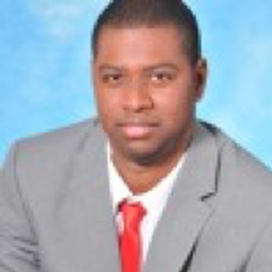
Dr David Alexander is currently the Programme Leader of the Energy Systems Engineering Unit at the University of Trinidad and Tobago (UTT). His main areas of research include Enhanced Oil Recovery, Carbon Capture and Storage and Waste Oil Management among other areas. He has served on several national and international committees as a member of the Environmental Commission of Trinidad & Tobago (ECTT), the Director of New Opportunities of the Society of Petroleum Engineers (SPETT), member of the Global Training Committee of the Society of Petroleum Engineers International (SPEI) and Membership and Education Advisor in the Energy Institute UK (Caribbean Branch). Dr Alexander holds a BSc. in Chemistry/Analytical Chemistry and a M.Sc. in Petroleum Engineering from the University of the West Indies. He also holds a Ph.D. in the field of Petroleum Engineering from the University of Trinidad and Tobago (UTT) in collaboration with the University of Texas at Austin.
Mike Monea, CEO, International Carbon Capture and Knowledge Centre
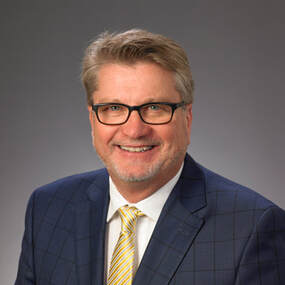
Mike Monea is the President and CEO of the International Carbon Capture and Storage (CCS) Knowledge Centre a non-profit organization which he helped to establish with BHP Billiton and SaskPower.
As a world-leading scientist, research and development is a key component in Mike’s mission to help reduce greenhouse gases through CCS technologies. His oversight of a scale-sized Carbon Capture Test Facility has ensured that progress continues to be made with international vendors on post-combustion capture systems. Progress gained in these areas can help reduce costs and advance CCS. Mike’s past experience in oil and gas has allowed him to understand the benefits of and opportunities for carbon dioxide for enhanced oil recovery (EOR) and deep saline reservoir storage.
As a world-leading scientist, research and development is a key component in Mike’s mission to help reduce greenhouse gases through CCS technologies. His oversight of a scale-sized Carbon Capture Test Facility has ensured that progress continues to be made with international vendors on post-combustion capture systems. Progress gained in these areas can help reduce costs and advance CCS. Mike’s past experience in oil and gas has allowed him to understand the benefits of and opportunities for carbon dioxide for enhanced oil recovery (EOR) and deep saline reservoir storage.
Dr. A.D Surridge, General Manager, South African Department of Minerals and Energy
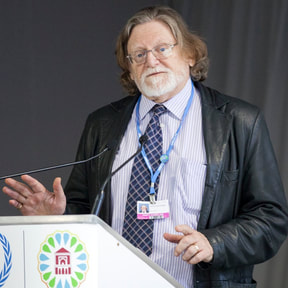
Since December 2006, Dr Surridge is General Manager- Cleaner Fossil Fuel Use at the South African National Energy Development Institute (SANEDI). During 2009, he established and is currently the Head of the South Africa Centre for Carbon Capture and Storage. During 2009, he established and is currently the Head of the South Africa Centre for Carbon Capture and Storage.
He drafted South Africa’s first National Integrated Energy Plan, inter alia drafted four pieces of legislation, negotiated a number of international agreements, and represented South Africa at numerous international gatherings including the United Nations Framework Convention on Climate Change. He serves on the Executive Committee of the International Energy Agency’s Greenhouse Gas Programme and as Co-Vice-Chairman of the Technical Group of the Carbon Sequestration Leadership Forum.
He drafted South Africa’s first National Integrated Energy Plan, inter alia drafted four pieces of legislation, negotiated a number of international agreements, and represented South Africa at numerous international gatherings including the United Nations Framework Convention on Climate Change. He serves on the Executive Committee of the International Energy Agency’s Greenhouse Gas Programme and as Co-Vice-Chairman of the Technical Group of the Carbon Sequestration Leadership Forum.
Dr. Donnie Boodlal, Associate Professor, The University of Trinidad and Tobago
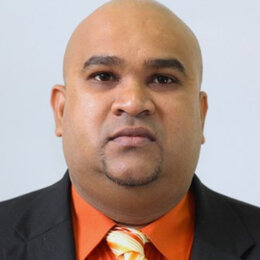
Donnie Boodlal is Lecturer/Researcher at the University of Trinidad and Tobago since 2007. He was recently appointed as a Co-Chair to the CERM Project. His work on the Cost-Effective Strategies for Greenhouse Gas Mitigation in Trinidad and Tobago is highly rated and he is regarded nationally as being at the forefront of the field of emissions reductions. His research efforts in this field mapped carbon dioxide emissions from key industries in Trinidad & Tobago and presented a precise methodology for assessing and evaluating the financial feasibility of mitigation techniques. His work is well recognized locally and internationally. Dr. Boodlal holds a B.Sc. in Mechanical Engineering, a Post Graduate Diploma in Petroleum Engineering, an M.Sc. in Industrial Innovation, Entrepreneurship and Management and a Ph.D. in Process Engineering.
Dr. Lorraine Sobers, CERM Project Coordinator, Lecturer, The University of the West Indies
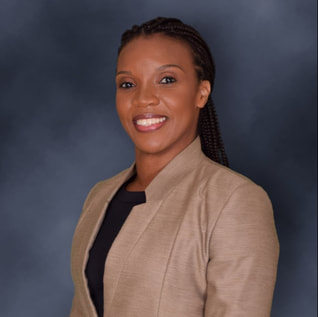
In 2016 Dr. Sobers developed and spearheaded the CO2 Enhanced Oil Recovery Road Map (CERM) Project, now the CO2 Emission Reduction Mobilisation Project, to facilitate an integrated national approach to use CO2 emission reduction techniques in the energy sector. As the CERM Project Coordinator, Dr. Sobers coordinates cooperation between government institutions and academia and develops the strategic direction of the collaborative initiative.
Dr. Lorraine Sobers is a Fulbright Scholar with a first degree in Chemical Engineering and a Masters Degree in Petroleum Engineering from Texas Tech University. In 2012, Dr. Sobers earned her Ph.D. in Petroleum Engineering at Imperial College, London. She is currently a lecturer at the University of the West Indies, St. Augustine specialising in CO2 storage injection strategies to maximise storage.
Dr. Lorraine Sobers is a Fulbright Scholar with a first degree in Chemical Engineering and a Masters Degree in Petroleum Engineering from Texas Tech University. In 2012, Dr. Sobers earned her Ph.D. in Petroleum Engineering at Imperial College, London. She is currently a lecturer at the University of the West Indies, St. Augustine specialising in CO2 storage injection strategies to maximise storage.
Proudly powered by Weebly

